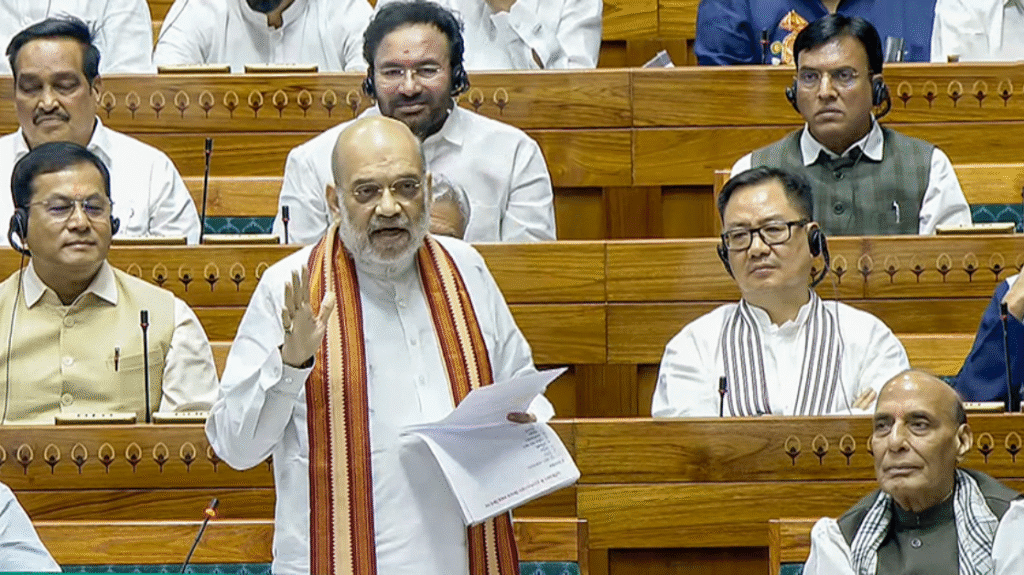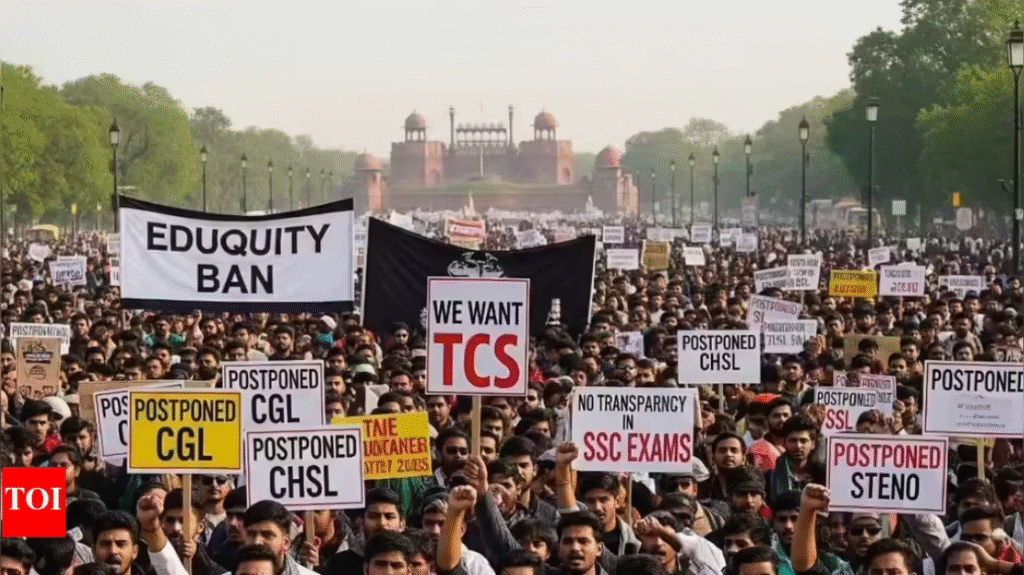In a move that has ignited fierce debate, Home Minister Amit Shah introduced three pivotal bills in Lok Sabha aimed at enabling the removal of Prime Minister, state Chief Ministers, and other ministers upon arrest—even before conviction. In a rare parliamentary compromise, the bills were promptly referred to a Joint Parliamentary Committee (JPC) after vociferous opposition uproar.
The Bills: What’s Proposed?
The trio of bills includes:
- The Constitution (130th Amendment) Bill, 2025 – Allows removal of ministers arrested for offenses punishable with five or more years of imprisonment, if they remain in custody for 30 consecutive days.
- The Government of Union Territories (Amendment) Bill, 2025
- The Jammu and Kashmir Reorganisation (Amendment) Bill, 2025.
Amit Shah described the legislation as a measure against corruption, aiming to uphold public trust by ensuring those under serious suspicion cannot continue holding executive power.
Political Backlash & Constitutional Concerns
Opposition lawmakers erupted, branding the bills as affronts to constitutional protections like presumption of innocence. Congress MP Manish Tewari argued that removing ministers based on allegations, not conviction, undermines due process and democratic stability. AIMIM’s Asaduddin Owaisi warned the bills distort the separation of powers by allowing the arresting agency to become judge and executioner.
West Bengal CM Mamata Banerjee went further, decrying the bill as a move toward a new “super-emergency,” and sounding alarms about democratic erosion.
JPC Referral: A Pause in the Legislative Storm
Facing immediate backlash, the government opted to refer the bills to a Joint Parliamentary Committee, comprising 31 Lok Sabha members and 10 from the Rajya Sabha, to ensure comprehensive scrutiny. The JPC has been tasked to submit its report by the first sitting of the next session, expected around mid-November.
While this move doesn’t delay the bills indefinitely, it signals a strategic response aimed at diffusing tensions and potentially refining the proposals through expert inputs.
Legal and Governance Implications
| Aspect | Implication |
|---|---|
| Due Process | Removal based on arrest without conviction flies in the face of the legal principle ‘innocent until proven guilty.’ |
| Political Stability | Easily removable ministers could become political tools in misuse of investigative agencies. |
| Federal Trust | States led by opposition leaders fear arbitrary removals may destabilize state governments. |
| Judicial Oversight | Strong public and parliamentary pressure may necessitate safeguards like judicial review or time-bound mandates. |
What Lies Ahead
- The JPC’s hearings may involve constitutional experts, jurists, and civil society stakeholders.
- Opposition parties are likely to press for safeguards or exceptions—for example, restricting removals to conviction rather than arrest.
- The committee’s findings will be pivotal in shaping the final form of the legislation—balancing anti-corruption goals with democratic protections.
Concluding Thoughts
The introduction of these bills reflects the BJP-led government’s emphasis on accountability. Yet it also raises fundamental questions about the balance between effective governance and preserving constitutional rights. The move to table the bills before a JPC illustrates the tension between executive intent and legislative caution—a debate likely to shape the contours of Indian democracy.
To read more Indian Laws and news, visit Legal Guide India



